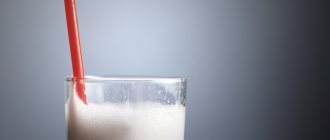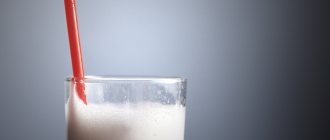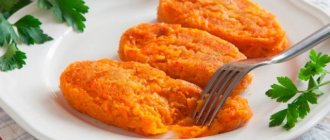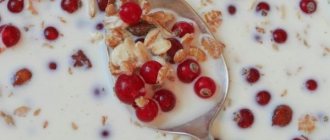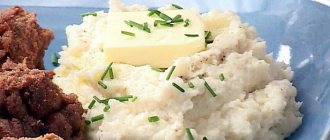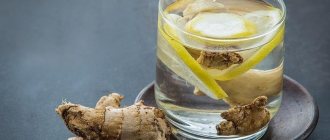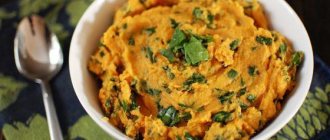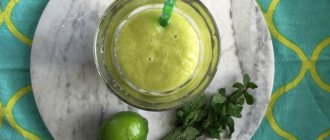In one article it is impossible to cover all the issues related to the use of such a popular dietary supplement as protein, and to definitely recommend a specific protein for gaining muscle mass. But every competent article brings us closer to understanding the basic principles that allow us to choose the right protein for weight gain. It is obvious to the thoughtful reader that the very formulation of the question includes a significant part of the information necessary to obtain the answer: which protein to choose for weight gain? From this it is clear that protein is needed in order to increase muscle mass, that is, to make muscles more voluminous, stronger and more prominent. From this we can conclude that the best proteins for gaining mass are those proteins that allow you to gain this mass (no matter how tautological it may sound).
This means that not every protein supplement that has the word “protein” on the packaging will help you gain weight. And even if it helps, this does not mean that the gained mass will be dry, that is, it will increase the amount of muscle, not fat. Paradoxical? But this is a fact. This happens for two reasons: 1) not all protein supplements are equal in quantity and quality of protein, and 2) each organism is individual and different organisms can perceive even one supplement differently. Therefore, when choosing protein for gaining muscle mass, you should take into account both the nature of specific supplements (their quantitative and qualitative composition, purpose, quality, price, etc.) and the characteristics of your own body (level of fitness, volume of training, individual need for protein, constitution, health status, existing allergic reactions, etc.).
So, let’s try to present the basic information necessary to choose and buy protein, simply and easily, without unnecessary words.
Do you even need protein?
This question among beginners stems from the suspicion that vigorous efforts to promote sports nutrition products are needed to achieve the goals of manufacturers and sellers, and not the goals of athletes. In addition, there are a lot of people who believe that strong and beautiful people with developed muscles existed before, before the production of various supplements, which means that you can do without them. Indeed, why load the body with unnecessary chemicals? Better to eat an extra cutlet.
There are many things that can be argued against this, but we will not argue here. We will give only a simple arithmetic calculation.
Muscle growth requires a positive energy balance. Simply put, you need to get more calories from food than you expend. This is good, but what complicates the situation is that muscle growth also requires regular muscle stress, which can only be provided by constant strength training. That is, you will have to spend a lot of energy. And you need to eat even more. During active sports, you need to consume 1.5-2 g of protein per 1 kg of body weight per day. That is, with a weight of 75 kg, this is 115-150 g of protein per day. In order to get at least 100 g of protein, you need to eat about 400 g of beef or pork (or tuna), or 12 eggs (800 g). In itself, this doesn't seem like a particularly phenomenal task. Just think, eat a 6-egg omelette for breakfast, and a 200-gram piece of meat for lunch. But, firstly, we took this to the minimum, secondly, if your weight is not 75, but 90 kg, then you will need more protein, thirdly, we are talking about the ideal protein norm, which not every real product from a supermarket can provide, so in real life you will have to eat a little more.
And finally, the most important thing. Together with natural products, you will receive many times more fats and carbohydrates than you planned. For example, in meat the share of protein is at best 25%, and everything else is fats and carbohydrates, and the energy value of fats is greater, so the share of protein in the energy value will be even lower. And you need 30-35% protein. Of course, everything can be solved. You can, for example, separate the whites from the yolks in eggs - and it will be almost pure protein (mixed with water). However, the more you exercise and grow, the more protein you will need, and the more protein you need, the more difficult it will become to gain something in your diet. Until the moment when you realize that you will either have to crack dozens of disgusting eggs without yolks, or turn to the achievements of modern civilization.
So you need protein. Although not everyone. Only for those who cannot get the required amount of protein with regular foods without going through carbohydrates and fats at the same time.
We haven’t touched on the issue of the amino acid composition of proteins yet, can you imagine? Because getting the required amount of protein into your diet is still half the battle. It is necessary to ensure that this protein is varied in composition (from animal and plant sources), but generally balanced, because often plant proteins are not completely complete, since they have a reduced content (or complete absence) of some important amino acids. So if the proportion of such inferior proteins in your diet is large enough, then the amount of protein you need daily will need to be increased. Thus, protein for mass gain is a really good solution.
DIY fat burning cocktails
Simultaneously with building muscle mass, the athlete must start another process in his body - burning excess fat. So that fat mass turns into muscle mass. Fat-burning cocktails will help us with this. And it is also quite possible to prepare them at home from the products available on hand.
Fat burning cocktail at home: recipe No. 1
The first recipe is for 2 liters of water. Ingredients of this cocktail:
- cucumber - 1 piece,
- lemon - 1 piece,
- ginger - 1 teaspoon,
- mint leaves - 12 pieces.
Grind everything. Leave the mixture to infuse at a temperature of 5°C for 12 hours. The resulting drink should be drunk the day before, half a glass at a time - 15 minutes before each meal.
Fat burning cocktail at home: recipe No. 2
The main component in this recipe is low-fat kefir.
- Take 1 glass of kefir ,
- literally add a pinch of crushed red pepper ,
- half a teaspoon of cinnamon
- and half a teaspoon of ginger .
Drink 30 minutes before meals.
Little secret
Also, in order to lose weight, gain muscle mass and generally get into human shape, you need to eat:
- grapefruit,
- apples,
- nuts,
- green tea (no sugar!),
- clean, still water in large quantities.
And don’t forget - these cocktails (as well as store-bought sports cocktails) only help if you follow the correct diet. All unhealthy foods, such as fatty and fried foods, should be excluded from your diet. It's better to steam it altogether.
Will protein be harmful to health?
There are so many bad rumors among people about protein, based on the principle “I heard a ringing sound, but I don’t know where it is,” that they simply give up. It’s good that recently people are becoming more and more literate and are learning that protein is just protein. And the supplements that line the shelves of sports stores are just purified protein from natural raw materials (for example, whey, eggs, or soy). In terms of its type and place among food products, it is the same as powdered milk, egg powder, instant coffee, fruit juice made from concentrate, etc.
The protein itself cannot cause harm (if you are a healthy person and do not have any special diseases). Harm can only come from improper use of protein (for example, in very large dosages), or a low-quality product made in violation of technology, which is rare, but is found among some unscrupulous manufacturers who exchange quality for quantity and cheapness.
Some believe that any protein additives - sweeteners, flavors, emulsifiers, etc. - chemicals that are completely harmful to health. In fact, no overtly harmful substances are used in the production of sports nutrition. Horror stories that aspartame (or other similar substances) are harmful to health are most often started by manufacturers of exactly the same additives, trying to squeeze out their competitors.
It is important to understand that a purified and concentrated product produced on a mass scale may not contain any additives because:
a) will quickly deteriorate,
b) will not mix well,
c) has a bad taste.
Don’t listen to armchair theorists who argue that all kinds of food additives (oh, that terrible letter “e”...) are evil. Just try to answer yourself the question: why does your mother put sugar in jam, your dad put salt in pickles, and your grandmother put vinegar in pickled tomatoes? The correct answer is because these are the oldest preservatives and flavor enhancers known to man. Without them, neither you nor anyone else will eat these wonderful, natural, vitamin-rich fruits and vegetables. And there will be nothing to eat, because in two weeks they will become moldy and rot. Even in the refrigerator.
When you read a long list of components on a protein package and wonder why it’s all there, just know that it is this “chemistry” that makes the product shelf-stable for a long time, not caking into lumps, stirs normally, is quite thick and homogeneous, does not form foam, and is acceptable on taste and smell, etc. And say thank you to an unknown manufacturer for taking care of you and the millions of athletes and sports fans like you who don’t want to find mold in an open can of protein on the third day, who don’t want to spend half a day stirring clumping mucus in a glass and then swallow it in one gulp bitter drink, holding back the urge to vomit. Every normal person wants to throw a scoop of prot into the water, spin it, shake the shaker a couple of times with hands trembling after exercise, and drink a delicious milkshake that charges your tormented muscles with nutrition.
Does protein work? And how does it work?
Works. At least, I worked for many thousands of athletes before you. And it will work for you. Just do everything right. Train well. Get enough rest. Organize your diet and eat right. Get the protein you need using protein powder. Do not replace a meal with a protein shake - it is a dietary supplement and not a meal replacement. Don't forget that in addition to protein, your body needs carbohydrates and fats, vitamins and minerals, dietary fiber and electrolytes. And water. And much, much more. Therefore, use protein specifically as a supplement that allows you to fuel your muscles during training or immediately after, as well as in long breaks between main meals, which should be at least 4.
Protein is made up of large protein molecules called polypeptides. It is a kind of natural biological polymer. The entire variety of proteins is formed by two dozen amino acids, interconnected in different orders into polypeptide molecules. In our digestive tract, these polypeptide chains are split first into smaller dipeptide and tripeptide molecules, and then into individual amino acids, which are absorbed into the blood and delivered to their destination. For example, in the muscles. Here, from some amino acids, our own protein is synthesized, which is necessary for muscle growth. And other amino acids are involved in various metabolic processes, in the synthesis of hormones, etc.
Different proteins (from different protein raw materials - whey, eggs, soy, etc.) are broken down by the body and absorbed at different rates. In addition, purified protein will be absorbed faster than the same protein in a natural product, since here the digestive enzymes are not diluted with other substances. And the higher the degree of purification, the faster the protein is absorbed. Whey protein is absorbed the fastest (from 40 to 90 minutes depending on different conditions). Therefore, it is good to take it an hour and a half before training, or immediately after, so that the body’s amino acid reserves are depleted more slowly and restored more quickly.
But casein is absorbed the slowest - from 3 to 6 hours. Therefore, it is good to take it shortly before bedtime or during long breaks when it is not possible to eat normally.
Homemade Protein Shake Recipes Using Protein Powder
Most athletes, bodybuilders and bodybuilders use ready-made protein powder as the main ingredient to prepare homemade protein shakes. Strawberry drink is considered a popular drink in the sports community; it can be made from whey protein. The recipe for 2 scoops will be as follows:
- milk – 1 cup;
- frozen strawberries - 1 cup;
- low-fat yogurt – 0.5 cups;
- peanut butter – 2 tsp;
- 6 ice cubes.
We will prepare it using a blender, mixing all the ingredients in it, and at the end we will get a high-protein cocktail with a calorie content of 186 Kcal, perfect for quickly replenishing energy reserves.
For those who need constant control of excess weight, the following recipe for a homemade protein shake, which we will prepare from whey protein at the rate of 2 scoops, would be ideal. You will need:
- 1% milk – 1 cup;
- oatmeal soaked in water - ¾ cup;
- low-fat yogurt – 2 tbsp;
- peanut butter – 2 tsp;
- 6 ice cubes.
This drink is very easy to make, just mix all the ingredients with a blender. Its calorie content is 220 kcal. Training with him will not seem difficult.
Which protein to choose for weight gain?
Any one that suits you personally. To quickly suppress catabolism (muscle breakdown) and stimulate protein synthesis after exercise, whey protein is best. Moreover, isolate is better than concentrate. True, BCAA is even better and faster. And cheaper than many isolates. No protein can ever compare with amino acid complexes in terms of speed and ease of absorption. So there is no point in chasing isolates and hydrolysates. Protein is good not for the speed of absorption, but for the completeness of its amino acid composition. Therefore, it is better to drink whey protein concentrate before training, and BCAA after training. And before bed - casein.
Since it is important for you to gain muscle mass, there is no point in chasing some kind of super-purified protein. Concentrate is fine. And even if you find 15-20% carbohydrates in the composition, this is not very critical for those gaining weight. The main thing is that you don’t have to overpay for some superfood that contains at most 60% protein.
Try 3-4 proteins from different manufacturers - and you will have a good understanding of the sports nutrition market and know the specific policies of these manufacturers. By the way, you don’t have to buy a whole jar for this - this can be done in fitness bars.
And a few more nuances.
DIY isotonic cocktails
During physical activity, a person usually sweats profusely; through sweat we lose a lot of liquid and healthy salts, and to replenish them all, we need to drink isotonic cocktails - they contain all the necessary carbohydrates and microelements.
Isotonic cocktail at home: recipe No. 1
Based on 3 liters of boiled water, dilute in water ½ cup of sugar, 2 tablespoons of glucose powder, 1 teaspoon of soda, 10 milliliters of 4% potassium chloride and 1.5 milliliters of 25% magnesia.
Isotonic cocktail at home: recipe No. 2
Calculation: 1 liter of water. Add 2 tablespoons of honey, a pinch of salt, juice of 3 oranges to the water, separately cook the ginger root for 3 minutes, grate and add to the mixture.
Isotonic cocktail at home: recipe No. 3
Add 3 tablespoons of sugar, 150 grams of chopped cranberries and 1 teaspoon of salt to ½ liter of water.
You should take isotonic cocktails throughout the day or 1 glass 30 minutes before training.
There are still many recipes for various cocktails in sports nutrition; anyone can choose one to suit their taste and budget. Proper use of such cocktails will provide you with the ideal additional effect for sports training, help build muscle mass and get rid of extra pounds.
Stop torturing yourself!
- We will develop a personal nutrition program for you.
- With it you will achieve your ideal weight without fasting or physical activity.
- This is the only truly healthy and natural way to lose weight.
Soy protein - how scary is it?
A normal thinking person is not afraid at all. After a good omelet, you won’t be pecked in your sleep by chickens that could have hatched from the eggs you ate. Why should soybeans, biologically not much different from beans and peas, scare us?
The argument of many authors writing about protein is based on the scheme “I don’t know what’s the matter, but just in case, I’ll say that it’s better not to drink soy protein.”
What are the actual facts? Soybean is a plant that produces beans rich in protein. The cost of protein from soybeans is much lower than that of proteins from other raw materials. The biological value of soy protein is slightly lower than that of whey and egg protein, due to the fact that the amino acid profile is slightly worse and there are substances that slow down the absorption of this protein. Yes, from this point of view, soy protein is a little worse than others. But it is many times cheaper.
Soy protein is not bad or harmful. He's just different. And it takes its well-deserved place in the line of proteins, just as the automobile line is not limited to Ferraris and Porsches, but also includes fawns and Fords.
Problems after taking protein
Some protein reviews contain information that the authors had problems with the gastrointestinal tract, etc. If it happens that you also have any problems, then pay attention to the composition of this protein. Try to reduce the dosage, since our body is not able to absorb more than 30 g of protein at one time (and for many this bar is even lower). Try a different protein, preferably one without thickeners, because thickeners like guar gum can cause gastrointestinal problems. In other words, try to clarify what exactly the problem is - in the protein itself, or in the accompanying components. Today on the sports nutrition market there are both multicomponent mixtures with all sorts of amino acids, enzymes and God knows what else, as well as practically sterile protein containing nothing except raw materials. It will be less tasty, but as natural as possible and, possibly, will cause fewer health problems.

